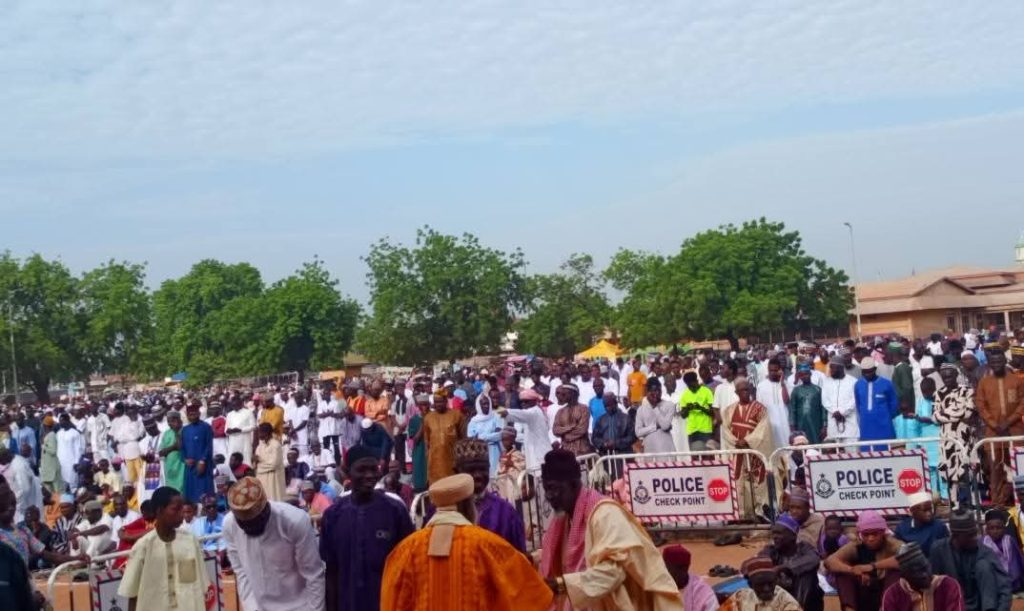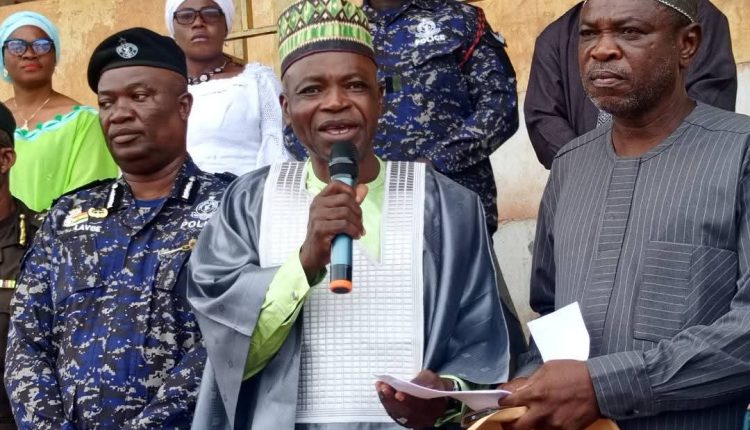By Issifu Alidu Laa-Bandow
Tamale, June 6, 2025
The serene and prayerful air of Eid-ul Adha at the Jubilee Park in Tamale was pierced by a stirring call to action on Friday, as the Northern Regional Minister, Hon. Ali Adolf John, urged Ghanaians — particularly the Muslim community — to unite against the rising tide of drug abuse threatening the region’s youth and future.
In a message that resonated beyond the usual religious platitudes, the minister spoke with urgency and clarity, describing the spread of tramadol and synthetic opioids among young people as “a slow-burning crisis destroying dreams and dismantling families.”
Addressing thousands of worshippers gathered for the annual Eid-ul Adha prayers, Hon. Ali Adolf John reminded the community that Eid is not merely a moment of festivity, but a solemn call to faith, sacrifice, and social responsibility. “Eid-ul Adha teaches us that faith requires action, not just ritual. Today, our greatest test of sacrifice is the willingness to stand up for our youth and save them from the grip of addiction,” he said.

Apparently, the minister’s remarks reflect growing public concern in the Northern Region, where youth unemployment, limited opportunities, and the availability of cheap, unregulated drugs have created a perfect storm for substance abuse.
Tramadol, a prescription opioid originally intended for pain relief, has found its way into the hands of teenagers and young adults, often used for recreational purposes. Its misuse has been linked to mental health issues, violence, and even death.
Hon. Ali Adolf John did not mince words: “This is not just a health issue. It is a moral and developmental crisis. A nation that loses its youth loses its future.”
In response to the crisis, the minister highlighted ongoing government efforts to tackle the problem through a mix of education, rehabilitation, and skills training. Chief among them is the National Apprenticeship Programme (NAP), which aims to equip young people with employable skills in trades like carpentry, tailoring, and mechanics. “We cannot fight drugs with sermons alone. We must offer alternatives — real, practical, and dignified pathways to self-worth and economic independence,” the minister noted.
He called on traditional leaders, Imams, teachers, and parents to actively participate in this fight, saying that “rehabilitation is only possible when there is a community ready to receive and reintegrate.”
While the message was deeply reflective, the minister also struck a note of gratitude and celebration. He commended the Ghana Hajj Board and partner agencies for the smooth and safe airlifting of 2,981 pilgrims from the Tamale International Airport to Mecca for the 2025 Hajj.
This achievement, he said, is not just a logistical success, but a testament to the growing capacity of Ghana’s northern regions to facilitate large-scale international religious events.
As the Eid prayers concluded and families prepared to share meat and meals in the spirit of sacrifice and community, the minister left worshippers with a final charge — to live out the values of the festival every day. “Feed the hungry. Educate your children. Shelter the poor. Protect the future. Let righteousness not be a ritual, but a way of life,” he urged.
In a region where the challenges are complex and deeply rooted, Hon. Ali Adolf John’s Eid message cut through with moral clarity and urgency — a reminder that even amid celebration, the real work of faith is often done in the streets, homes, and hearts of everyday people.
zaaghana.com//zanews


